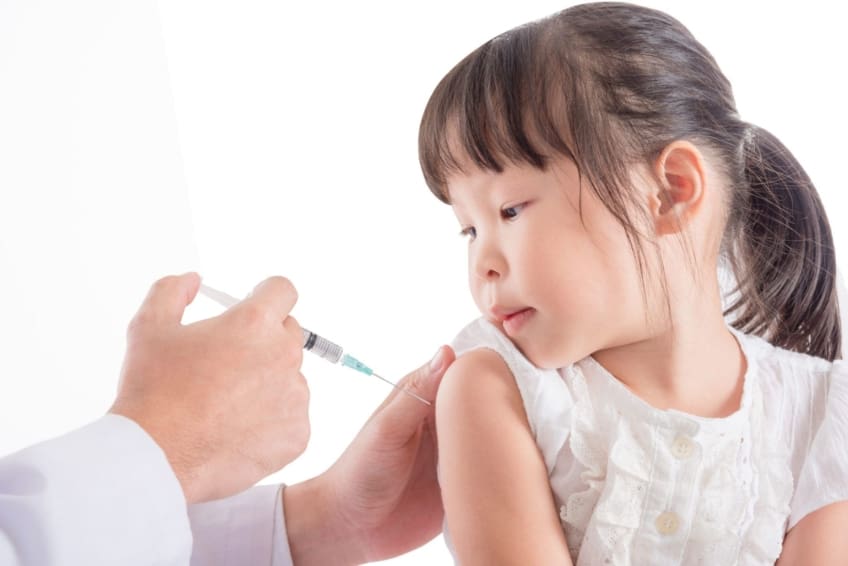
Pneumococcal disease is caused by bacteria. It can lead to infections in the lungs, blood, and brain. Pneumococcal disease causes health problems in children usually younger than 5 years of age. This includes meningitis, blood infections, and ear infections. The greatest risk for infection is for children younger than 2, adults over 65, people with certain medical conditions, and cigarette smokers. The vaccine prevents the disease in both children and adults.
Path to improved well being
About the pneumococcal conjugate vaccine (PCV13):
- It’s given as a shot to children and adults. It helps prevent pneumococcal disease. It also helps prevent the spread of the infection from person to person.
- The vaccine’s protection lasts at least 3 years. The most serious pneumococcal infections happen during the first 2 years of life. This means the vaccine protects children when they are at the greatest risk.
- The disease has become resistant to some medicines used to treat it. This makes the vaccine even more important.
Vaccine dosage:
- Healthy children younger than age 2 should get 4 doses of the vaccine on this schedule:
- One dose at 2 months of age
- One dose at 4 months of age
- One dose at 6 months of age
- One dose at 12 to 15 months of age
- Adults 64 and older
- Children and adults 2 to 64 with certain medical conditions
- Children between 2 and 5 years of age with the following medical conditions:
- Sickle cell disease
- Spleen damage or no spleen
- A cochlear implant
- A cerebrospinal fluid (CSF) leak
- HIV/AIDS
- Other diseases that affect the immune system (these include diabetes, cancer, or liver disease)
- Medicines that affect the immune system (these include chemotherapy or steroids)
The number of doses a child needs depends on the how old the child was when they started getting the shots. Children who miss the first dose at 2 months should still get the vaccine. Ask your doctor for more information.
Children with any of the above conditions should also get a second type of pneumococcal vaccine, the pneumococcal polysaccharide vaccine (PPSV23). Ask your doctor if this recommendation applies to your child.
Pneumococcal conjugate vaccine may be given at the same time as other childhood vaccines.
Things to consider
Children should not get pneumococcal conjugate vaccine if:
- They have had a serious (life threatening) allergic reaction to a previous dose.
- They are moderately or severely ill. Wait until your child has recovered before getting the vaccine. A minor illness, such as a cold, is not a problem.
In clinical trials, pneumococcal conjugate vaccine was associated with only mild reactions, such as:
- Tenderness or swelling at the site of the shot
- Mild fever
- Fussiness
- Tiredness
- Poor appetite
- Vomiting
A vaccine, like any medicine, could cause serious problems. This includes a severe allergic reaction. The risk of this vaccine causing serious harm or death is rare. If you have concerns, talk to your doctor.
A serious allergic reaction usually happens within a few minutes to a few hours after the shot. Signs of a serious allergic reaction include:
- Difficulty breathing
- Hoarseness or wheezing
- Hives
- Going pale
- Weakness
- A fast heartbeat
- Dizziness
- Swelling of the throat
What to do if your child has an allergic reaction:
- Call your doctor immediately or go to his or her office. If serious, call 9-1-1.
- Ask your doctor’s office to file a Vaccine Adverse Event Reporting System (VAERS) form or call VAERS at (800) 822-7967.
You can find out more about the vaccine by:
- Asking your doctor or nurse. They have vaccine information or can direct you to additional resources.
- Calling your local or state health department immunization program.
Questions to ask your doctor
- Is the pneumococcal conjugate vaccine required for starting school?
- What should I do if my child hasn’t been vaccinated. Is it too late?
- Is the damage from the disease reversible?
![]()
Copyright © American Academy of Family Physicians
This information provides a general overview and may not apply to everyone. Talk to your family doctor to find out if this information applies to you and to get more information on this subject.







